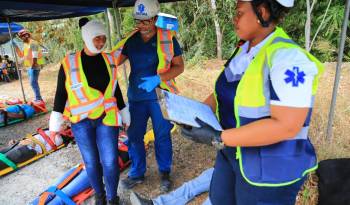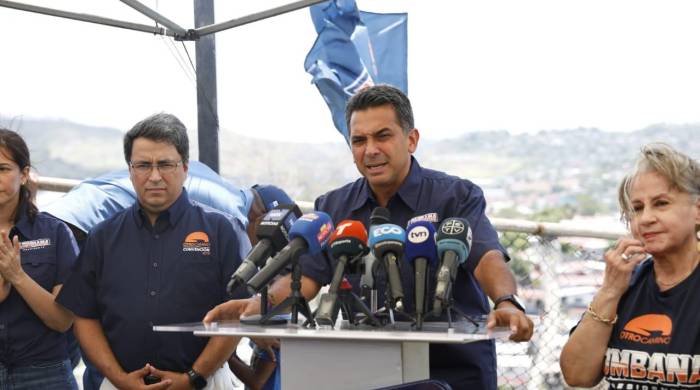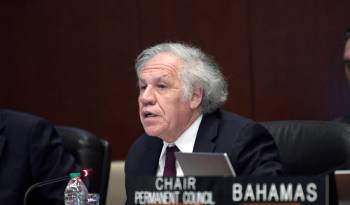Concesionaria Madden Colón llevó a cabo un simulacro de accidente sobre la autopista como fase final del Curso de Formación de Brigadas de Emergencias,...
- 13/05/2009 02:00
- 13/05/2009 02:00
PANAMA. The cases of A/H1N1 flu in Panama are increasing daily and people all over the country are beginning to panic before the possibility of a full blown epidemic.
Although there is no vaccine for the A/H1N1 flu at the moment, the Health Ministry has launched a vaccination program for the common flu in an effort to curtail the spread of this disease by boosting people’s immune system.
Every year there are around 2050 cases of common flu in the country and that is why health authorities are looking to protect the most vulnerable.
A Ministry of Health spokesman said that the vaccination program currently in place is not a new initiative, taking place every year between the months of May and August.
Over the last few days approximately 45,000 people have been vaccinated against the common flu. They are mainly children under five, adults over 60, people with respiratory and immunological diseases, those who have diabetes, liver problem and high blood pressure. The vaccines are free of charge.
However, those who do not fall into one of those categories have been forced to pay between $22 and $100 in private clinics and hospital for the vaccinations.
Callers to a local television channel demanded that the Health Ministry expand the age group of people who can receive the vaccination for free to include adolescents and young adults.
Yet health authorities say only those who belong to the above mentioned vulnerable groups will be vaccinated.
Last Monday the Health Minister, Rosario Turner and the Presidency Minister, Rafael Mezquita had a meeting with different media outlets in order to consolidate a strategy to educate the population about the best ways to prevent the spread of the A/H1N1 virus.
Meanwhile, the number of A/H1N1 cases has dramatically increased since Friday.
By Tuesday, there were 18 confirmed cases of which five were men and 13 women.
Health officials expect more confirmed cases to show up.
The Gorgas Institute director, Nestor Sosa said that currently the A/H1N1 flu is behaving like the common flu and it appears that the virus is here to stay.
Currently there are 50 people under observation, waiting to find out if they have been infected with the A/H1N1 virus. Six of them have been in close contact with people previously confirmed to be suffering of the flu.
Angel Valencia, a representative of the World Health Organization, praised the work done by the Panamanian authorities in three important areas: detection of the disease, isolation of the suspected cases and treatment of the patients.
On Monday four schools were temporarily closed after four students were confirmed to have swine flu.
Colegio Angel Maria Herrera in the Cocle province, Centro Educativo Vacamonte, in La Chorrera area, The Oxford International School and Episcopal San Cristobal in Panama City are going to be closed for at least three day to decontaminate the classrooms.
Minister Turner said that it was just a precaution and there is no justification to shut down schools that have not shown any confirmed A/H1N1 cases.
She also had meetings with the Municipal Director of Garbage Collection, Rafael Reyes because the workers are concerned that they are going to be infected by the disease through contaminated rubbish from hospitals, if they do not receive adequate training and equipment.
Health authorities have hired 34 additional personnel among doctors, nurses and technicians to be able the face a possible epidemic.


















